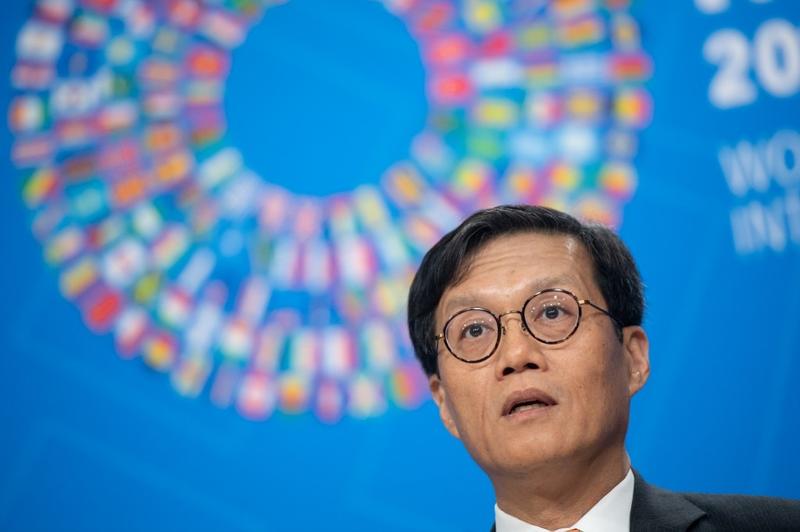IMF Asia and Pacific Department Director Changyong Rhee yesterday in Colombo began discussions with the Government about ways for a faster stabilisation of the economy and stimulating the growth.
Rhee upon arrival, along with IMF Resident Representative in Colombo Tubagus Feridhanusetyawan met Finance Minister Basil Rajapaksa and Treasury Secretary S.R. Attygalle.
Discussions centred around key observations in the IMF’s Staff Report released in early March following the Article 4 consultation with the Government.
“It was agreed to present a plan from Sri Lanka so that the IMF can decide what are the areas it can support,” Finance Ministry sources told the Daily FT. Finance Minister Rajapaksa is scheduled to visit Washington DC next month to formally present to the IMF the Government program and expectations.
Rhee is also scheduled to call on President Gotabaya Rajapaksa today to stress on the IMF’s views on the state of the Lankan economy.
Central Bank Governor Nivard Cabraal last week tweeted that IMF meetings of Sri Lankan authorities are not for the purpose of debt restructuring.
On 3 March the IMF warned of serious downside risks for Sri Lanka’s socio-economic outlook urging the Government to implement multiple measures to successfully address both immediate and medium term challenges.
It stressed the economic outlook constrained by debt overhang with public debt rising to unsustainable levels; persistently large fiscal and balance-of-payments financing needs. IMF also revealed GDP growth negatively affected by impact of the FX shortage and macroeconomic imbalances on economic activities and business confidence.
IMF said that unless the fiscal and balance-of-payments financing needs are met, Sri Lanka could experience significant contractions in imports and private credit growth, or monetary instability in case of further Central Bank financing of fiscal deficits.
Despite the ongoing economic recovery, the IMF Executive Directors noted that the country faces mounting challenges, including public debt that has risen to unsustainable levels, low international reserves, and persistently large financing needs in the coming years.
Against this backdrop, they stressed the urgency of implementing a credible and coherent strategy to restore macroeconomic stability and debt sustainability, while protecting vulnerable groups and reducing poverty through strengthened, well-targeted social safety nets.
Directors emphasised the need for an ambitious fiscal consolidation that is based on high-quality revenue measures. Noting Sri Lanka’s low tax-to-GDP ratio, they saw scope for raising income tax and VAT rates and minimising exemptions, complemented with revenue administration reform.
Directors encouraged continued improvements to expenditure rationalisation, budget formulation and execution, and the fiscal rule. They also encouraged the authorities to reform state-owned enterprises and adopt cost-recovery energy pricing.
The IMF Directors agreed that a tighter monetary policy stance is needed to contain rising inflationary pressures, while phasing out the Central Bank’s direct financing of budget deficits.
They also recommended a gradual return to a market-determined and flexible exchange rate to facilitate external adjustment and rebuild international reserves. Directors called on the authorities to gradually unwind capital flow management measures as conditions permit.
(FT)

